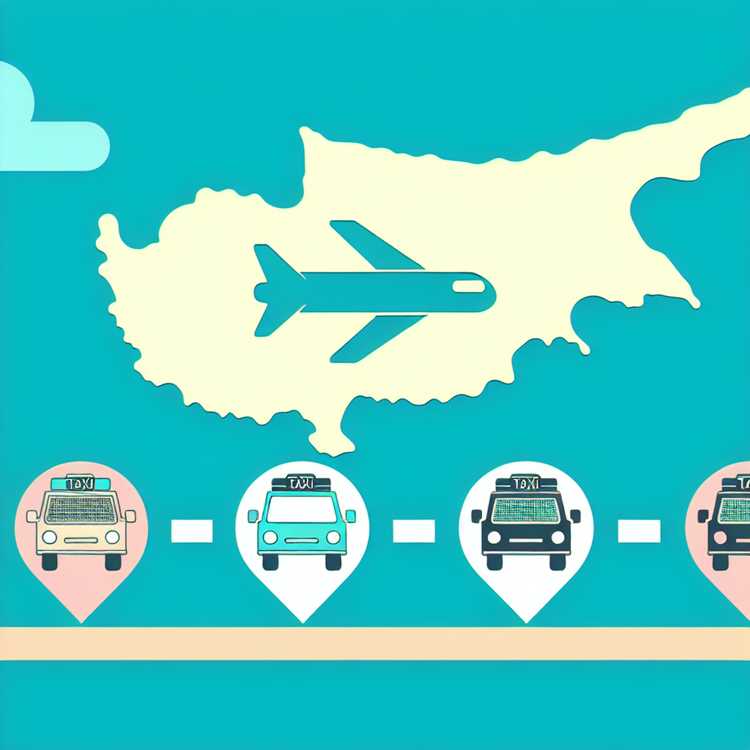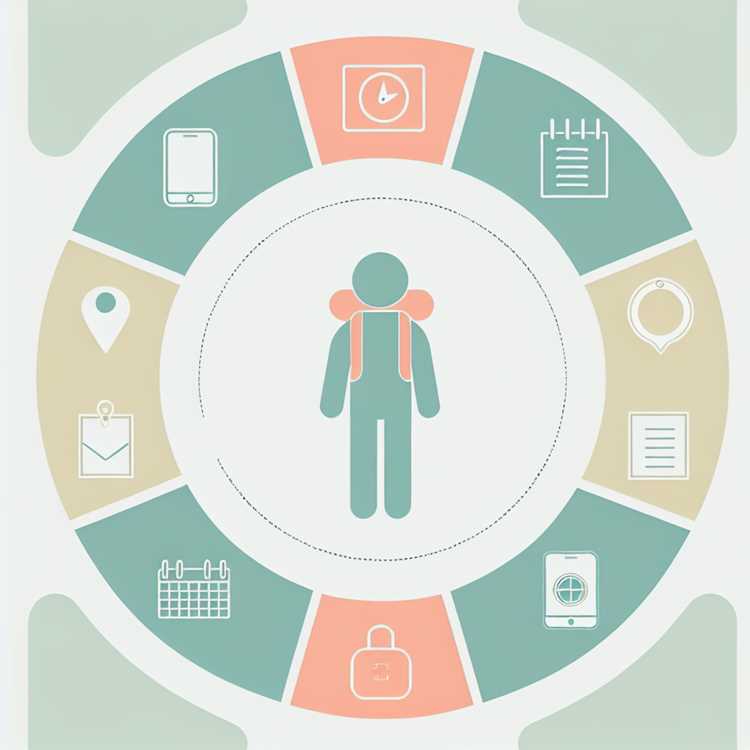
Choose a pre-booked private cyprus airport transfer for groups of three or more and families: expect €45–€65 from Larnaca Airport to Limassol (≈55 km, 45–60 min), €35–€50 to Nicosia (≈45 km, 35–50 min), and €70–€95 to Paphos (≈140 km, 75–90 min). Single travelers on a tight budget save most by taking intercity buses or the Kapnos shuttle, with one-way fares typically between €3 and €12 depending on route.
Service types differ by price, speed and convenience. Private transfers lock a fixed fare, include meet-and-greet and luggage assistance, and often allow one free hour of waiting; expect add-ons like child seat €5–€10 and late-night surcharge €10–€20. Standard taxis use meters (base fare ≈ €3.50 plus ≈ €1.20–€1.50/km), so a taxi from Larnaca to Limassol commonly lands in the €50–€65 band and to Paphos near €90–€110. Shared shuttles cost about €10–€25 per person and add stops, raising trip time by 15–40 minutes. Intercity buses run scheduled routes with fares from €2–€10 and travel times comparable to private options on main corridors but with fixed stops. Car rental starts around €20/day in low season; factor fuel, parking and required deposit.
Match the option to your profile: if you carry oversized luggage or have a small child, book a private transfer and reserve a child seat in advance; if you travel solo and want the lowest price, pick the intercity bus or shuttle and buy tickets online or at airport kiosks. Reserve transfers 24–48 hours before arrival for best availability and price transparency. For arrivals between 00:00–05:00 confirm pickup time and extra fees when you book.
Pay online by card to lock the quoted rate and avoid meter surprises; keep some cash for tips and small local transactions. Check cancellation terms–many pre-paid services permit free cancellation up to 24 hours before arrival. Verify the meeting point (typically the Arrivals Hall or an assigned exit) and the driver’s name/vehicle details sent by email or SMS so you locate your ride without delay.
Cyprus Airport Transfers: Comparison of Services and Prices
Choose a prebooked private transfer for arrivals with family, late flights or heavy luggage; it gives a fixed one-way fare, meet-and-greet and guaranteed vehicle size.
Private transfers typically cost: Larnaca→Ayia Napa €45–55, Larnaca→Protaras €55–75, Larnaca→Limassol €55–75, Larnaca→Paphos €95–120. Private drivers track flights and wait 45–60 minutes after touchdown at no extra charge with most reputable providers.
Taxis work well for solo travelers who want to depart immediately. Expect metered or flat airport fares roughly: Larnaca→Ayia Napa €50–70, Larnaca→Limassol €60–80, Larnaca→Paphos €110–140. Have cash in euros for small fares and confirm if card payment is accepted before you ride.
Shared shuttles give the lowest per-person price on direct routes: from €10–20 to resorts near Larnaca and €20–35 for Paphos. Allow an extra 15–40 minutes for stops. Book seats in advance during busy months to avoid sold-out trips.
Public buses provide the cheapest option. City and intercity fares run roughly €2–12 depending on distance; expect longer travel time and limited luggage space. Check Intercity Buses schedules and the A22/A21 routes from Larnaca airport for current timetables.
Car hire starts around €25–60 per day off-season; rates climb in high season. Factor in fuel, parking and a credit-card deposit. Choose automatic only if needed; manuals are cheaper. Pick-up desks at Larnaca and Paphos airports operate through international rental brands and local firms.
| Service | Typical one-way price (EUR) | Travel time (approx.) | Best for | Pros | Cons |
|---|---|---|---|---|---|
| Private transfer | Larnaca→resorts €45–120; Paphos→local €15–80 | Fast, direct (see paragraph fares) | Families, groups, late arrivals | Fixed fare, meet-and-greet, luggage space | Higher cost than shared options |
| Taxi | €15–140 depending on route | Direct, same as private | Solo travelers, immediate departures | Available at rank on arrival | Night/holiday surcharges, limited space |
| Shared shuttle | €8–35 per person | +15–40 min due to stops | Budget travelers without tight schedules | Low price per person | Multiple stops, fixed pickup windows |
| Public bus | €2–12 | Longest; depends on route | Backpackers, solo on a strict budget | Cheapest option | Limited luggage space, schedule constraints |
| Car hire | €25–60/day | Depends on driving | Travelers wanting flexibility | Freedom to explore, cost-effective for multi-day trips | Fuel, parking, deposit and local driving rules |
Practical notes: prebook transfers during July–September and Easter to lock in lower rates; request child seats in advance; check cancellation and flight-tracking policies; verify total price includes airport pickup fees and waiting time. For arrivals between 22:00–06:00, compare quoted night surcharges before confirming.
Comparing per-passenger fares: Larnaca taxi, shared shuttle and private car
Pick a metered airport taxi for fastest door-to-door travel if you travel alone; choose a shared shuttle for the lowest per-person fare on short-to-medium routes; book a private car when you travel with 3+ people or heavy luggage for the best value and comfort.
Typical one-way fares and per-person math
Larnaca Airport → Larnaca city centre (≈6–8 km, 10–20 min): taxi €15–€20 per vehicle (solo €15–€20; two people €7.50–€10 each), shared shuttle €6–€10 per person, private car transfer €25–€35 per vehicle (two people €12.50–€17.50 each; four people €6.25–€8.75 each).
Larnaca Airport → Ayia Napa / Protaras (≈45–55 km, 40–60 min): taxi €55–€70 per vehicle (solo €55–€70; two people €27.50–€35 each), shared shuttle €9–€15 per person (typical €10–€12), private car €70–€90 per vehicle (three–four people €17.50–€30 each depending on group size).
Larnaca Airport → Nicosia (≈40–50 km, 35–50 min): taxi €50–€65 per vehicle, shared shuttle €10–€14 per person, private car €65–€85 per vehicle.
Allow for extra charges: night/early-morning pickups typically add €5–€10, large-bag surcharges €2–€5 per bag, and some private-transfer providers add a small booking fee (€3–€10). Shared shuttles add time for drop-offs; private cars and taxis go direct.
Practical recommendations by traveler type
Solo traveller needing speed: take the airport taxi; expect to pay the full vehicle fare but save time. Solo or couple on a tight budget: choose a shared shuttle if total door-to-door time + 15–30 minutes is acceptable. Couple or family with luggage: compare private-car vs taxi – for distances over 30 km a private transfer often costs about the same as a taxi but offers fixed pricing and meet-and-greet. Groups of 3 or more: book a private car; per-person cost usually beats taxi and shared shuttle while avoiding multiple stops.
Book private transfers online for guaranteed pricing and vehicle size; use the taxi rank for immediate departures; reserve shared shuttles in advance during high season to secure a seat. Check whether quoted fares include luggage and meet-and-greet to avoid surprises.
How to book total-price transfers that include meet‑and‑greet and luggage charges
Request a guaranteed total-price quote that explicitly itemizes “meet‑and‑greet” and “luggage” charges before you confirm the booking.
Ask the supplier to show a single final amount plus a line-by-line breakdown: base fare, meet‑and‑greet fee, luggage fee per item or per category (standard / oversized), included waiting time (minutes), number of passengers covered, vehicle class and trunk capacity, VAT/taxes, cancellation and amendment fees, and the payment methods accepted.
Send this exact booking text when you reserve: “Flight: [airline + flight number], Arrival: [date/time], Terminal: [terminal], Pax: [adults/children], Luggage: [number of checked bags + hand luggage], Meet name: [passenger name for sign], Contact: [mobile with country code], Special: [child seat/mobility], Request: itemized total-price quote showing meet‑and‑greet and luggage line items, free waiting minutes, and driver contact/registration.” Save the reply and voucher PDF.
Confirm the free waiting window and late-arrival rules: many arrival transfers include 45–60 minutes of free waiting from touchdown, but some allow only 15–30 minutes for pre-booked curbside pickups. Ask the provider for the exact free minutes and the per-minute charge after that (typical range shown as example on invoices: €0.50–€2.00/minute).
Specify luggage precisely: state the number and type (e.g., 2 checked suitcases 23kg each, 2 carry‑ons, 1 golf bag). If you travel with oversized items (bikes, surfboards, extra-large suitcases), request a quote for the exact equipment and vehicle model that fits it. Ask for trunk dimensions or vehicle boot volume if you have tight-fitting gear.
Require driver identification on the voucher: driver name, mobile number, vehicle make and registration plate, pickup point description (e.g., “Arrivals hall, exit B – meet at information desk”), and the name that will appear on the driver’s sign. If the supplier monitors flights and covers delays at no extra charge, get that statement in writing.
Prefer prepayment when the operator provides a confirmed total-price invoice; check whether prepayment locks the rate and what refund timeline applies. If you prefer to pay cash, confirm the currency accepted and whether a card surcharge or VAT handling applies.
Verify the company: check licence and insurance status on the Cyprus Ministry of Transport site, confirm company registration or VAT number on the booking voucher, and read recent independent reviews. Keep the operator’s local emergency phone and the booking reference accessible on arrival.
If the supplier cannot provide an itemized total-price quote, request the final amount on arrival documents or choose another vendor. For regulatory information and contact details for Cyprus transport authorities, see the Ministry of Transport, Communications and Works.
Choosing the right vehicle for families: child seats, extra bags and size surcharges
Book a 7-seat MPV or small minibus if you travel with two adults, two children and three or more large suitcases; reserve ISOFIX child seats and confirm all surcharges before arrival.
Sedan (e.g., Toyota Corolla): fits 3 passengers plus 2 medium suitcases (approx. 60×40×25 cm). Estate/wagon (e.g., VW Passat Estate): fits 4 passengers plus 3 medium suitcases. 5–7 seat MPV (e.g., Ford Galaxy, VW Touran): fits 5 passengers and 4–6 medium suitcases or 3 adults plus 4 large suitcases. 8–16 seat minibus: best for 6+ passengers with heavy/oversized luggage. Provide exact bag counts and dimensions when booking to avoid last-minute vehicle swaps.
Child seat types and fit: infant rear-facing (0–13 kg), convertible/forward-facing (9–18 kg), high-back booster (15–36 kg) and backless booster (for children over 125–135 cm depending on provider). Ask for ISOFIX-equipped seats if you prefer rigid anchoring; many transfer fleets offer ISOFIX but stock varies. Operators typically require child restraints for children under 135 cm or under 12 years–state child’s age, height and weight when you book.
Typical surcharge ranges (per transfer): child seat hire €5–€15 per seat; extra standard bag €3–€8; oversized/odd-shaped items (surfboards, skis, large prams) €15–€40; vehicle upgrade from sedan to MPV €10–€30. Some companies include one stroller free if folded; confirm whether surcharges apply at return transfer as well.
Booking checklist to avoid surprises: 1) list passenger count and each child’s age/weight/height; 2) list number and size of suitcases (measure the largest); 3) state if you need ISOFIX; 4) note any oversized items and whether they travel in a hard case; 5) request total price including all surcharges and payment method. Save the operator’s contact and your reservation reference.
At pickup inspect the installed seat: check harness routing, expiry/manufacturer label and that the seat clicks into ISOFIX or is secured with the vehicle belt. If the driver installs the seat, verify a correct fit before you leave the airport. For infants under six months, consider bringing your own rear-facing carrier if you want guaranteed fit and hygiene.
Practical examples: Family of four with 3 large suitcases – choose an MPV and expect an extra-bag fee only if bags exceed quoted allowance; two adults with two infants – reserve two ISOFIX infant seats and allow €10–€30 extra for seat hire; group of six with sports gear – book an 8–9 seat minibus and declare equipment to get an accurate quote.
Door-to-door timing: transfer durations, waiting allowances and recommended buffers
Book arrival transfers with a minimum 60‑minute buffer from scheduled landing; use 90 minutes for long‑haul or high‑traffic flights and 30–45 minutes only for hand‑luggage, nonstop arrivals.
Concrete timing components and typical ranges
- Disembarkation: 5–20 minutes.
- Passport/immigration check: 10–60 minutes (shorter for intra‑EU/Schengen routes, longer for non‑EU or peak periods).
- Baggage reclaim: 10–50 minutes (most arrivals 15–30 minutes; delayed belts or large flights can push to 40–50 minutes).
- Walk to meeting point / transfer desk: 5–15 minutes.
- Total arrival-to-meeting estimate: 30–120 minutes depending on origin and luggage.
Typical drive times from Cyprus airports (private car estimates)
- Larnaca (LCA) → Limassol: 35–50 minutes (≈55 km).
- Larnaca → Ayia Napa / Protaras: 30–45 minutes (≈45 km).
- Paphos (PFO) → Paphos city: 15–25 minutes (≈16 km).
- Paphos → Polis / Latchi: 45–70 minutes (≈65–80 km).
- Larnaca → Nicosia: 30–40 minutes (≈45 km).
Increase all drive estimates by 10–25% during July–August mornings (07:30–09:30) and late afternoons (16:30–19:30), and on local holiday dates.
- Arrival waiting allowances:
- Flight‑based meet-and-greet services commonly include 60 minutes free waiting from scheduled arrival; many extend this automatically if they monitor the flight.
- If your booking shows only 30 minutes free, add an extra 30–60 minute buffer on pickup time or choose a provider with flight monitoring.
- After free waiting, common surcharge ranges: €8–€20 per 15–30 minutes or a flat late‑arrival fee (€20–€40).
- Hotel / address pickups:
- Most drivers allow 10–20 minutes free waiting at hotels; commercial policies often charge €5–€12 per 15 minutes afterward.
- For group or assisted pickups (large luggage, wheelchair), request a 10–15 minute extra free window at booking.
- Shared shuttles:
- Follow strict pickup windows (usually ±15–30 minutes). Missing the window can trigger rebooking fees or next-vehicle wait times.
How to calculate the correct pickup time:
- Decide required airport arrival time per airline (A). Typical airline guidance: short international 60–90 minutes; long‑haul 120–180 minutes.
- Add expected drive time from origin to airport (D) using the table above and add 10–25% for peak season.
- Add a local buffer (B) of 10–30 minutes for traffic, elevator waits, luggage loading.
- Pickup time = Flight departure time − A − D − B.
Examples
- Flight departs 14:00, airline requires 120 minutes, Larnaca→Limassol drive 45 minutes, buffer 15 minutes → pickup at 11:00.
- Flight departs 09:00, airline requires 60 minutes, Paphos→Paphos Airport drive 20 minutes, buffer 10 minutes → pickup at 07:30.
- Arrival lands 16:30, expect 60 minutes to meet driver, drive to hotel 45 minutes → hotel arrival ~18:15; for a booked driver with 60‑minute free waiting you are covered, but if baggage looks slow add another 30 minutes to pickup planning.
Quick provider‑checklist before booking
- Ask whether the driver monitors flight status and if flight delay protection is included.
- Confirm free waiting windows for arrivals and hotel pickups in writing and note surcharge rates per time block.
- Request a firm pickup time with margin if travelling during peak hours or holidays.
- Choose private transfers for tight connections; avoid shared shuttles when you need strict timing guarantees.
When shared shuttles beat private transfers for routes to Paphos and Limassol
Choose a shared shuttle when you travel solo or as a couple, arrive during daytime, carry only cabin or one checked bag each, and want clear savings versus a private car.
Typical pricing: shared shuttles from Larnaca Airport to Limassol commonly cost €10–€20 per person, to Paphos €12–€25 per person. Comparable private transfers run about €60–€90 to Limassol and €90–€140 to Paphos. Example: two travelers paying €15pp for a shared shuttle to Limassol spend €30 total versus ~€75 for a private car – a saving of ~€45.
Time trade-offs: a private transfer delivers door-to-door fastest (Limassol ~50–70 minutes from Larnaca; Paphos ~1hr45–2hr15 from Larnaca, Paphos Airport to Limassol ~55–75 minutes). Shared shuttles typically add 15–45 minutes for additional stops and pickups; factor that into arrival plans.
When shared shuttles are the better choice:
– Budget travel: Savings scale per person; solo travelers and pairs benefit most. – Central hotels: If your accommodation lies on the shuttle route (city center hotels in Limassol or central Paphos), detours are minimal. – Flexible schedule: Daytime arrivals allow quick grouping; high-frequency departures reduce wait. – Light luggage: Carriers usually accept one medium suitcase plus cabin bag per passenger.
When to pick private instead: late-night or early-morning arrivals, tight schedules, more than two large suitcases, door-to-door convenience for remote villas, business trips requiring punctuality, or groups of four or more where private cost per person becomes cheaper.
Booking tips: compare per-person total price not just headline rates; confirm picked-up time window and number of stops; verify luggage allowances and any extra fees; read the cancellation and flight-delay policies. For arrivals between 07:00 and 21:00, check shuttle frequency – if intervals are under 30 minutes, shared will usually save money without adding excessive time.
Cancellation, no-show and refund policies across major Cyprus transfer providers
Choose a transfer that offers free cancellation at least 24 hours before pickup, flight-tracking for arrivals and clear refund timelines – this prevents surprise charges and speeds refunds.
Standard rules to follow: cancel more than 24 hours before pickup for a full refund in most cases; cancel inside 24 hours or miss the pickup and expect a 50–100% charge; use flight numbers for airport pickups so providers adjust for delays automatically.
Suntransfers – typical policy: free cancellation up to 24 hours before; late cancellations or no-shows often incur full charge; refunds to cards normally processed by Suntransfers immediately but can take 5–14 business days to reach your bank; PayPal refunds usually arrive within 1–3 business days. If you book a cheap fare, check the fare rules: some promotional rates are non-refundable.
HolidayTaxis (and many marketplace platforms) – typical policy: free cancellation up to 24 hours; some suppliers on the platform set stricter rules (non-refundable or 50% penalty inside 24 hours); always open the supplier-specific terms on your confirmation and keep screenshots of the cancellation page for disputes.
Taxi2Airport and Kiwitaxi – typical policy: free cancellation up to 24 hours for standard transfers; pre-paid bookings cancelled less than 24 hours before pickup usually lose the fare or pay a partial fee; both companies commonly list exact cut-off times in the booking email and supply a refund reference number when processed.
GetTransfer and broker services – typical policy: cancellation rules vary by assigned driver; once a driver accepts the job you may face a partial or full charge for late cancellation or no-show; choose drivers with “free cancellation” or pay via PayPal for faster refunds when testing a new provider.
Welcome Pickups (where available) – typical policy: free cancellation up to 24 hours, travel tracking for arrivals, driver waiting times shown at booking; late cancellation usually triggers a full or high-percentage charge but they tend to process refunds quickly; contact customer support with booking ID and flight number for faster handling.
Local hotel transfers and metered taxis – typical policy: private pre-paid hotel transfers commonly apply non-refundable or short-window rules (48–24 hours); paying the driver on the spot gives you flexibility but removes a prepaid refund option; if a driver fails to show, request a written receipt and lodge a claim with the hotel or booking agent within 24 hours.
No-show specifics and evidence to collect: note driver name, vehicle registration and timestamped photos; ask for the provider’s incident or case number; email that evidence immediately – most providers require claims within 24–48 hours to grant refunds or waive fees.
Refund timing and escalation: expect provider-side processing within 1–7 business days; card issuer delays add another 3–10 business days; if a refund stalls past two weeks, open a chargeback with your card company citing the provider’s confirmation and cancellation emails.
Practical checklist before booking: verify cancellation window on the specific rate, confirm flight tracking is enabled, prefer PayPal or card payments with documented receipts, save booking and cancellation screenshots, and set a calendar reminder to cancel before the cut-off if plans change.
When uncertain, pay a slightly higher refundable rate. The small extra cost often beats losing 100% of a prepaid transfer or fighting a delayed refund for weeks.
Accessible transfer options: wheelchair access, assistance booking and potential extra costs
Book accessible transfers at least 72 hours before arrival; during July–August and major holidays reserve 5–7 days in advance to secure a suitable vehicle and trained driver.
- Provide precise booking details: flight number and arrival time, number of passengers, wheelchair type (manual or power), folded dimensions (L×W×H) and weight, and level of assistance required (self-transfer, need of two-person help, or hoist/transfer board).
- Ask these specific questions to any operator before confirming:
- Vehicle type: WAV, minivan with ramp, minibus with tail lift or purpose-built accessible taxi?
- Ramp or lift width (ask for mm or cm) and maximum load (kg).
- Internal doorway and aisle width; maximum wheelchair footprint allowed (cm × cm).
- Restraint system: 4-point tie-down or automatic docking, and lap-and-shoulder belt availability.
- Driver qualifications: manual-handling training, PRM (passenger with reduced mobility) experience and whether an assistant/caretaker is provided.
- Whether non-folding or heavy powerchairs require an additional vehicle or surcharge.
- Confirm operational details in writing: pick-up point (arrival hall exit, baggage carousel number), driver name and vehicle registration, telephone contact, and a clear cancellation/refund policy for missed flights or delays.
- Coordinate with the airline and airport: request on-aircraft assistance (PRM) through your airline and ask the transfer operator to meet you at the agreed arrivals point once you clear PRM services. Airlines often handle boarding/disembarkation assistance separately from private transfers.
Typical extra costs and how to manage them:
- WAV or specialist vehicle supplement: commonly €5–€25 per transfer; request a written quote that includes all fees.
- Non-folding or heavy powerchair surcharge: €10–€40 if a larger vehicle or extra handling is needed.
- Hoist, stair-climber or two-person transfer assistance: €20–€60 extra depending on equipment and time.
- Waiting time charges: usually charged in blocks (e.g., €10–€25 per 15–30 minutes) beyond a 15–30 minute grace period; confirm the free-wait window.
- Night, public-holiday or remote-area surcharges: expect a 15–50% uplift; ask for total price for your exact pick-up time and postcode.
- Parking or ferry fees passed to the customer: operators may add actuals–request an itemised invoice.
Practical checklist to send when booking (copy-paste):
- Arrival flight/time & terminal
- Number of passengers and seats required
- Wheelchair type: manual/power, folded L×W×H (cm), weight (kg), fixed or folding
- Assistance level: independent / one-person assist / two-person assist / hoist needed
- Any extra luggage or medical equipment (oxygen cylinder, scooter, etc.)
- Contact phone on arrival and any mobility aid registration/reference
Day-of tips:
- Confirm driver name and plate 30–60 minutes before arrival.
- Have an airport PRM reference or airline confirmation ready to speed up transfer from aircraft to vehicle.
- Keep a printed or screenshot copy of the booking and the operator’s emergency number.
- If the vehicle cannot accommodate your wheelchair, decline and request the operator’s written confirmation and full refund; carry an alternative plan (accessible taxi company phone number or hotel contact).
Q&A:
What types of airport transfer services are available in Cyprus and how do they compare?
You can choose between several options: metered taxis (airport meters or fixed airport tariffs), pre-booked private cars, shared shuttle vans, public buses, and rental cars. Taxis give direct door-to-door service and work well if you have luggage or arrive late. Pre-booked private transfers offer a fixed price and a meet-and-greet service, which is handy for groups or families with child seats. Shared shuttles are cheaper per person but may make multiple stops and take longer. Public buses are the least costly but follow timetables and may not serve every hotel. Rental cars add freedom to explore but require time at the desk and local driving. Choose based on budget, group size, luggage, and how quickly you want to leave the airport.
How much does a taxi from Larnaca Airport to major destinations typically cost?
Typical ranges (one-way, approximate): Larnaca to Nicosia: €35–€50; Larnaca to Limassol: €50–€70; Larnaca to Ayia Napa: €45–€60. From Paphos Airport, short trips into Paphos town are usually €15–€25; to Limassol expect around €45–€65. These figures vary with time of day, number of passengers, and any airport or luggage surcharges. Check the airport taxi board or ask the official rank attendant for the current tariff before accepting a ride.
Should I pre-book a private transfer or just take a taxi on arrival?
Pre-booking has clear benefits: you lock a price ahead, a driver will wait for you (useful if your flight is delayed), and you can request specific vehicle types or child seats. This reduces the hassle after a long flight. On the other hand, taking a taxi from the official airport rank can be quicker and sometimes cheaper for solo travelers, especially outside peak season. If you prefer certainty, travel with children, or arrive late at night, book ahead. If you travel light and are flexible, using the official taxi rank is a reasonable option. Whichever you choose, keep confirmation details or a photo of the driver/plate handy.
Are shared shuttles a practical option for solo travelers on a tight budget?
Yes, shared shuttles can save money compared with private transfers, especially for single travelers. They operate between the airport and major resorts or hotel clusters. Expect scheduled pickup windows and multiple stops, which lengthen travel time. Luggage limits may apply, so check size and quantity allowances before booking. If your arrival time is within the shuttle schedule and you don’t mind extra stops, a shuttle is a cost-effective choice. If speed or a direct ride matters, select a taxi or private transfer instead.
What steps should I take at Cyprus airports to avoid extra charges or unreliable drivers?
Use the official taxi rank inside the terminal, not drivers who approach passengers outside. Ask for the tariff list or make sure the meter is running for metered taxis. For pre-booked transfers, confirm the company name, driver contact and plate number before leaving the terminal. Request a receipt at the end of the trip. If a price is quoted in advance, get it in writing in your booking confirmation. Be cautious about extra fees for waiting time, oversized luggage, or late-night service — check these items when you book or before you start the trip. If unsure, visit the airport information desk for guidance.





